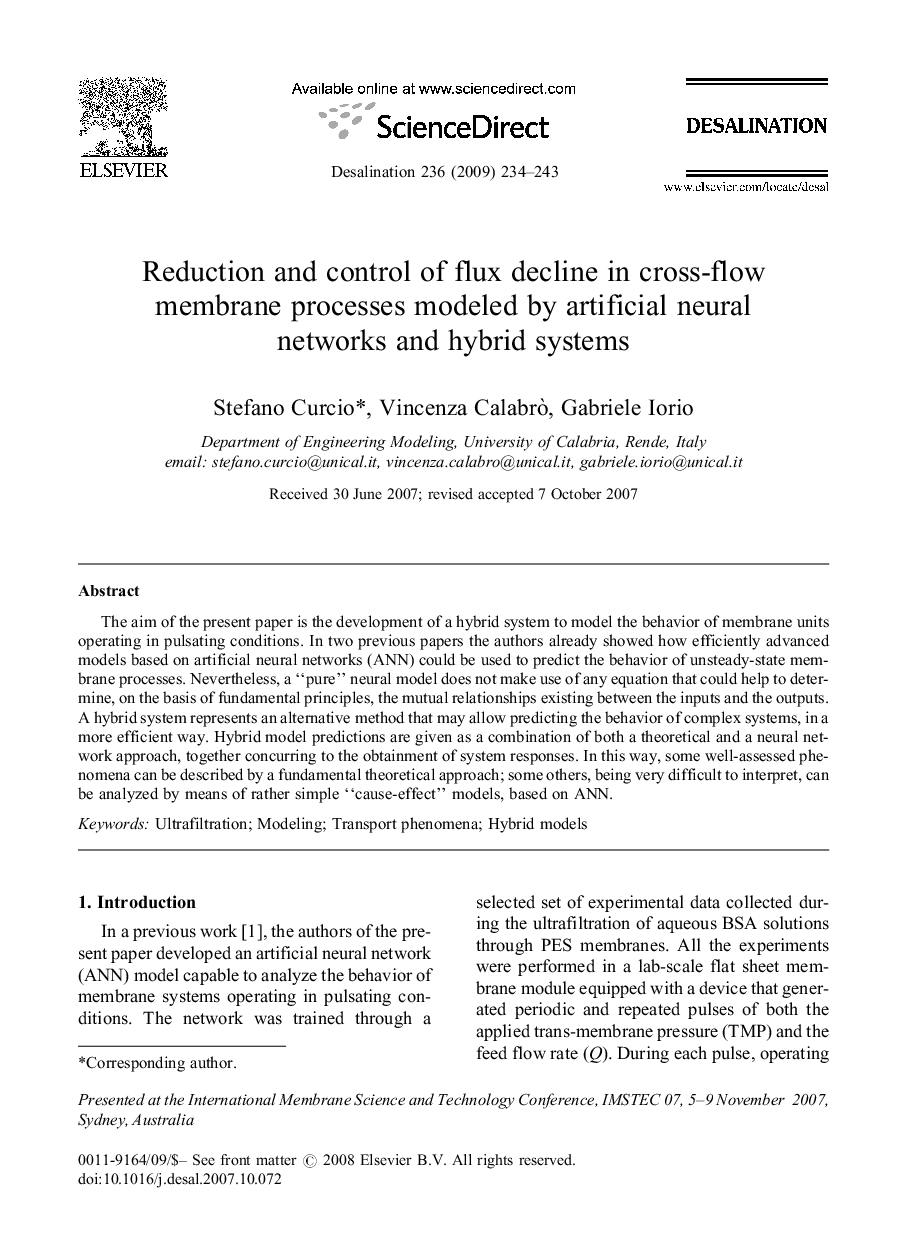| Article ID | Journal | Published Year | Pages | File Type |
|---|---|---|---|---|
| 627043 | Desalination | 2009 | 10 Pages |
Abstract
The aim of the present paper is the development of a hybrid system to model the behavior of membrane units operating in pulsating conditions. In two previous papers the authors already showed how efficiently advanced models based on artificial neural networks (ANN) could be used to predict the behavior of unsteady-state membrane processes. Nevertheless, a ''pure'' neural model does not make use of any equation that could help to determine, on the basis of fundamental principles, the mutual relationships existing between the inputs and the outputs. A hybrid system represents an alternative method that may allow predicting the behavior of complex systems, in a more efficient way. Hybrid model predictions are given as a combination of both a theoretical and a neural network approach, together concurring to the obtainment of system responses. In this way, some well-assessed phenomena can be described by a fundamental theoretical approach; some others, being very difficult to interpret, can be analyzed by means of rather simple ''cause-effect'' models, based on ANN.
Related Topics
Physical Sciences and Engineering
Chemical Engineering
Filtration and Separation
Authors
Stefano Curcio, Vincenza Calabrò, Gabriele Iorio,
